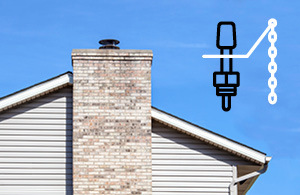Low-Cost Energy Saving Tips for Winter Weather
 During this spell of extremely cold weather, we thought we would share some low- or no-cost energy-efficient tips to reduce your utility costs while saving energy.
During this spell of extremely cold weather, we thought we would share some low- or no-cost energy-efficient tips to reduce your utility costs while saving energy.
1. Don’t let heat go up your chimney.
Keep your damper closed if you are not using your fireplace. Leaving the damper open allows warm air to go right up the chimney. Check your flue damper seal and ensure it is tight.
You can also reduce heat loss by using C-shaped metal tube grates to draw cool air into the fireplace and circulate warm air back out. Or you may want to consider intalling glass doors and a heat-air exchange system which returns warmed air into the room.
2. Stay out of hot water.
Your water heating costs can account for about 18 percent of the energy consumed in your home. Set your water heater to 120 degrees F. You can also insulate your propane or oil hot-water storage tank. (Follow the manufacturer’s recommendations.)
3. Let the sun in.
Open curtains in windows facing south during the day to allow the sun to provide natural heat. Close the curtains at night to reduce any chill from cold windows. You can also install tight-fitting or insulating shades to reduce drafts.
4. Adjust your thermostat.
When you leave the house or go to sleep, set your thermostat back 8 to 10 degrees for at least six hours. You can save up to 10 percent on your heating costs over the entire heating season. For maximum energy savings, install a programmable thermostat.
5. Don’t skip your annual check-up.
It is important to have your heating system maintained annually to keep it operating efficiently. Proper maintenance extends the life of your furnace or boiler and helps to avoid costly emergency service.
Plus, remember to replace your filter once a month or as needed. Clogged filters prevent your furnace from moving as much air as it was designed to do, which causes it to run longer to heat your house and adds to your gas or electric bill.
6. Look for leaks.
Look for air leaks around cut-throughs for pipes and vents, gaps around chimneys, and unfinished spaces behind cupboards and closets. Add caulk or weatherstripping to seal any leaks around doors and windows.
7. Close the door.
Leaving your garage door open is just a giant hole that sucks warm air out of your home and lets cold drafts in. Be sure to close the door when not in use.
Schedule your annual safety check & tune-up or request repair service online.
We sell and service all makes and models of propane, oil, or natural gas systems.


